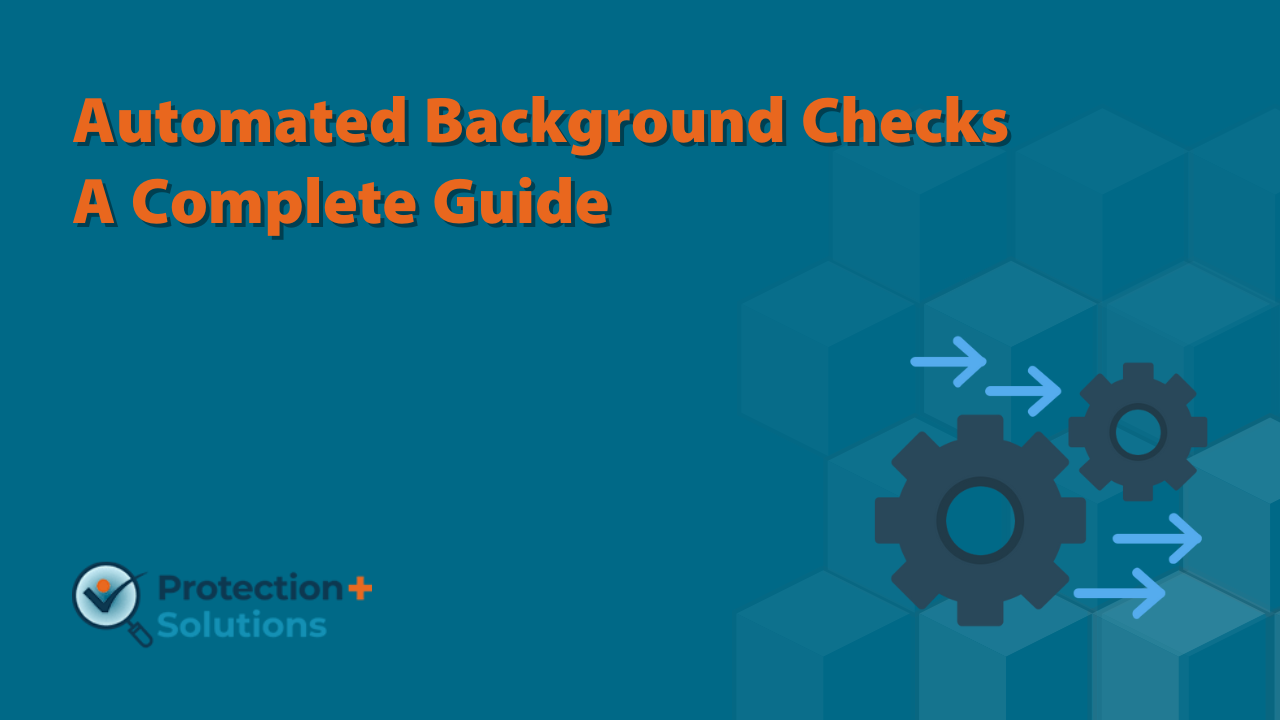Automated Background Checks – A Complete Guide

What Are Automated Background Checks?
Automated background checks are digital systems designed to quickly gather and verify an individual’s history using technology. Instead of relying on phone calls and paperwork, these checks use software, AI, and big data to validate information such as employment history, education, criminal records, and even online activity.
Why Are They Important Today?
In a world where companies hire faster and people apply to multiple jobs online, speed and accuracy are critical. Employers, landlords, and financial institutions need trustworthy information quickly. Automated background checks make this possible, reducing waiting times from weeks to just minutes in many cases.
The Evolution of Background Checks
Manual vs. Automated Background Checks
Traditionally, background checks meant endless phone calls, letters, and waiting. HR teams had to manually verify each candidate’s claims. Now, automation does the heavy lifting in seconds, checking multiple databases simultaneously.
How Technology Changed the Process
Thanks to AI, cloud computing, and machine learning, background checks have become smarter. Automated tools don’t just confirm facts they analyze patterns, detect fraud, and highlight potential risks employers might miss.
How Automated Background Checks Work
Data Sources Used
Automated systems pull data from multiple sources: government records, credit bureaus, employment databases, and even social media platforms.
Algorithms and AI in Screening
Artificial Intelligence analyzes the data, filters irrelevant information, and flags inconsistencies. This ensures that hiring managers only see what truly matters while screening.
Speed and Accuracy Benefits
Instead of waiting weeks, companies can get background results in minutes. This not only speeds up hiring but also reduces human error.
Advantages of Automated Background Checks
Faster Hiring Processes
Companies fill positions quicker when background checks take hours instead of weeks.
Reduced Human Error
Automation minimizes mistakes caused by manual verification.
Cost-Effectiveness
Less paperwork and fewer staff hours save organizations significant money.
Compliance with Legal Standards
Automated systems often stay updated with the latest legal requirements, reducing compliance risks.
Challenges and Limitations
Data Privacy Concerns
Automated checks raise questions about how much personal data is too much.
Risk of False Positives or Negatives
No system is perfect sometimes mistakes happen, like flagging the wrong person with a similar name.
Legal and Ethical Considerations
Different countries have different laws, and companies must ensure fairness and transparency in their checks.
Automated Background Checks in Different Industries
Corporate Hiring
Most large organizations rely on automation to streamline high-volume recruitment.
Healthcare Sector
Hospitals use checks to ensure employees have clean records and valid licenses.
Financial Institutions
Banks and lenders verify financial history to prevent fraud and ensure trust.
Gig Economy and Freelancing
Platforms like rideshare apps use quick checks to approve drivers and freelancers.
Best Practices for Using Automated Background Checks
Combining Automation with Human Oversight
Automation is powerful, but human judgment is still necessary for context.
Ensuring Transparency with Candidates
Employers should inform applicants about the process and give them a chance to explain results.
Staying Updated on Regulations
Laws around background checks change frequently, and companies must adapt.
The Future of Automated Background Checks
Role of Artificial Intelligence and Machine Learning
AI will continue to refine checks, making them smarter and more accurate.
Predictive Analytics in Hiring
Beyond verifying, future systems may predict candidate success based on past behavior.
Global Expansion of Automated Systems
As businesses expand globally, automated checks will help standardize hiring processes across borders.
Conclusion
Automated background checks have transformed the way organizations hire and manage trust. While they bring speed, accuracy, and efficiency, they also raise important questions about privacy and fairness. The key lies in balancing automation with human oversight, ensuring both compliance and compassion in the process.

